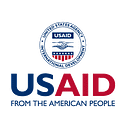Restoring Reproductive Health Choices in Afghanistan
Women and urban poor are priority for private health products firm
The Afghan Social Marketing Organization (ASMO), a leading private-sector provider of family planning and maternal and child health products, has long contributed to health in Afghanistan. Data from 2015 show that more than 22 percent of women in Afghanistan who used modern contraceptives used products marketed by ASMO. Similarly, ASMO’s socially marketed products accounted for 16 percent of total household water treatment use and 11 percent of oral rehydration solution use for diarrhea.
But the economic crisis caused by recent political conflicts and global sanctions hampered ASMO’s ability to supply vital health products across Afghanistan. The situation made it difficult for consumers to afford products. As a result, ASMO’s sales dropped by roughly 75 percent, threatening its organizational sustainability.
In addition to greatly reduced sales, ASMO also faced delays in procuring and importing its health products. This was due in part to global suppliers’ refusal to accept orders, challenges with international fund transfers, and fewer cargo flights — on top of pre-existing supply chain disruptions caused by the COVID-19 pandemic. This led to more frequent and prolonged stockouts and difficulty generating enough income to sustain operations.
At the same time, new Sharia-led restrictions on family planning promotions and female models in media campaigns disrupted ASMO’s ability to increase awareness of its products.
Climbing back, with LHSS support
To understand the full impact of ASMO’s challenges, it is important to understand who relied on its products: largely women, and mostly poor women. Indeed, nearly all Afghans — 90 percent — live below the poverty line. Loss of access to any of ASMO’s products could have potentially devastating impacts on the health and lives of women and children. To protect against this, consistent efforts to preserve and strengthen access to ASMO’s products are critical.
The USAID Local Health System Sustainability Project (LHSS) in 2022 stepped in to help strengthen Afghanistan’s private health sector by providing technical and financial assistance to ASMO. With LHSS support, ASMO is making its health products available across a larger geographic area, generating demand for the products, and strengthening its organizational capacity for more significant impact and increased resilience.
LHSS collaborated with ASMO’s leaders to improve the organization’s ability to meet the needs of low-income families in Afghanistan — with an emphasis on women and girls. To cope with frequent procurement delays and stockouts, LHSS assisted ASMO in increasing its buffer stock and procurement lead times. To improve product promotion, LHSS has helped ASMO focus on social media, in-clinic patient sensitization, community outreach, and use of radio and billboards to disseminate health messages.
Building on ASMO systems and procedures designed over the years with support from previous USAID projects, LHSS has also worked closely with ASMO to strengthen the company’s third-party distributors (TPDs) in three regions, price its products appropriately by taking inflation and competitive products into consideration, and implement product cross-subsidization strategies to keep products affordable and in demand.
Taken together, these strategies have revitalized national sales, including in the TPD-managed provincial markets.
ASMO quarterly sales revenue, 2019–2023
With support from LHSS, ASMO sold products that delivered approximately 90,000 couple years of protection, disinfected around 42 million liters of drinking water, and treated more than 100,000 episodes of diarrhea between October 2022 and June 2023.
Further, to increase access for low-income people — with a special emphasis on women — ASMO expanded to over 100 markets in slums and district areas of five large urban provinces, and expanded product distribution through retail channels, midwife clinics, and private health facilities in the urban provinces of Kabul, Nangarhar, and Herat.
New avenues to serve the underserved
Looking ahead, ASMO aims to expand into low-income urban neighborhoods through partnerships with private pharmacies, midwives, hospitals, and community-based health microentrepreneurs.
ASMO also plans to introduce new products, including misoprostol for prevention of post-partum hemorrhage, and to use alternative media platforms to reach target audiences. These efforts are designed to work within the new restrictions and ultimately expand access to and use of priority health products for women and girls in Afghanistan.
“Now that access has been restored, women are once again able to control their reproductive health,” said Dr. Ebrahim Heidar, executive director of ASMO. “ASMO will strive to ensure an uninterrupted supply of life-saving products to the priority Afghan population.”
